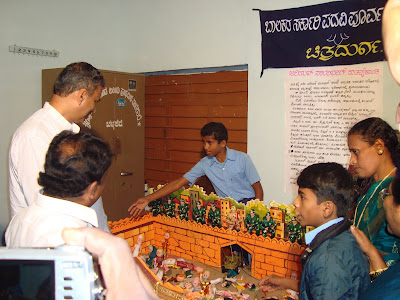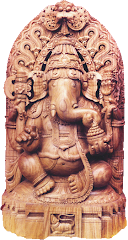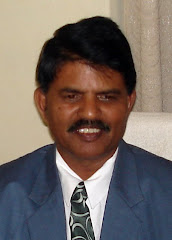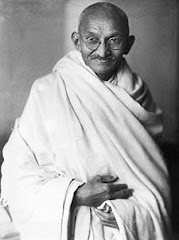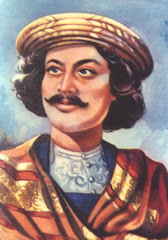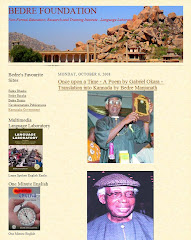Friday, November 2, 2012
Monday, February 20, 2012
SSLC Question Bank Series - Pareeksha Mitra - Kannada, English, Hindi, Maths, Science, Social Science
SSLC Kannada First Language - Pareeksha Mitra - Question Bank - Prepared by Hassan District Kannada Teacher’s Clubs
http://issuu.com/educationhassan/docs/sslc_pareeksha_mithra_-_english_second_language?mode=window&backgroundColor=%23222222
SSLC English Second Language - Pareeksha Mitra - Question Bank - Prepared by Hassan District English Teacher’s Clubs
http://issuu.com/educationhassan/docs/sslc_pareeksha_mithra_-_hindi_third_language?mode=window&backgroundColor=%23222222
SSLC Hindi Third Language - Pareeksha Mitra - Question Bank - Prepared by Hassan District Hindi Teacher’s Clubs
http://issuu.com/educationhassan/docs/sslc_pareeksha_mitra_-_maths_1?mode=window&backgroundColor=%23222222
SSLC Mathematics - Pareeksha Mitra - Question Bank - Prepared by Hassan District Mathematics Teacher’s Clubs
http://issuu.com/educationhassan/docs/sslc_pareeksha_mithra_-_science?mode=window&backgroundColor=%23222222
SSLC Science - Pareeksha Mitra - Question Bank - Prepared by Hassan District Science Teacher’s Clubs
http://issuu.com/educationhassan/docs/sslc_pareeksha_mithra_-_social_science?mode=window&backgroundColor=%23222222
SSLC Social Science - Pareeksha Mitra - Question Bank - Prepared by Hassan District Social Science Teacher’s Clubs
http://issuu.com/educationhassan/docs/sslc_mathematics_work_book_2012_by_chitradurga_mat?mode=window&backgroundColor=%23222222
SSLC Question Bank Series - Pareeksha Mitra - Kannada, English, Hindi, Maths, Science, Social Science
Sunday, February 12, 2012
Pratibha Karanji - State Level Meet 2012 in Chitradurga - Report in Shikshana Varthe - Feb 2012
Pratibha Karanji - State Level Meet 2012 in Chitradurga
Thank You All those who made this a success
Pratibha Karanji - State Level Meet 2012 in Chitradurga - Report in Shikshana Varthe - Feb 2012
Friday, October 29, 2010
Monday, October 11, 2010
Nobel Prize in Economics 2010 - Peter A. Diamond, Dale T. Mortensen, Christopher A. Pissarides
http://nobelprize.org/nobel_prizes/economics/laureates/2010/
Peter A. Diamond
Dale T. Mortensen
Christopher A. Pissarides
Peter A. Diamond
Dale T. Mortensen
Christopher A. Pissarides
 |
|
Press Release
11 October 2010The Royal Swedish Academy of Sciences has decided to award The Sveriges Riksbank Prize in Economic Sciences in Memory of Alfred Nobel for 2010 to
Peter A. Diamond
Massachusetts Institute of Technology, Cambridge, MA, USA,
Dale T. Mortensen
Northwestern University, Evanston, IL, USA
and
Christopher A. Pissarides
London School of Economics and Political Science, UK
"for their analysis of markets with search frictions"
Markets with search costs
On many markets, buyers and sellers do not always make contact with one another immediately. This concerns, for example, employers who are looking for employees and workers who are trying to find jobs. Since the search process requires time and resources, it creates frictions in the market. On such search markets, the demands of some buyers will not be met, while some sellers cannot sell as much as they would wish. Simultaneously, there are both job vacancies and unemployment on the labor market.
This year's three Laureates have formulated a theoretical framework for search markets. Peter Diamond has analyzed the foundations of search markets. Dale Mortensen and Christopher Pissarides have expanded the theory and have applied it to the labor market. The Laureates' models help us understand the ways in which unemployment, job vacancies, and wages are affected by regulation and economic policy. This may refer to benefit levels in unemployment insurance or rules in regard to hiring and firing. One conclusion is that more generous unemployment benefits give rise to higher unemployment and longer search times.
Search theory has been applied to many other areas in addition to the labor market. This includes, in particular, the housing market. The number of homes for sale varies over time, as does the time it takes for a house to find a buyer and the parties to agree on the price. Search theory has also been used to study questions related to monetary theory, public economics, financial economics, regional economics, and family economics.
Peter A. Diamond, US citizen. Born 1940 in New York City, NY, USA. Ph.D. 1963, Institute Professor and Professor of Economics, all at Massachusetts Institute of Technology (MIT), Cambridge, MA, USA.
http://econ-www.mit.edu/faculty/pdiamond
Dale T. Mortensen, US citizen. Born 1939 in Enterprise, OR, USA. Ph.D. 1967 from Carnegie Mellon University, Pittsburgh, PA, USA. Ida C. Cook Professor of Economics at Northwestern University, Evanston, IL, USA.
http://faculty.wcas.northwestern.edu/~dtmort
Christopher A. Pissarides, British and Cypriot citizen. Born 1948 in Nicosia, Cyprus. Ph.D. 1973, Professor of Economics and Norman Sosnow Chair in Economics, all at London School of Economics and Political Science, UK.
http://personal.lse.ac.uk/pissarid
The Prize amount: SEK 10 million, to be shared equally between the Laureates.
Contact: Erik Huss, Press Officer and Editor, phone +46 8 673 95 44, +46 70 673 96 50, erik.huss@kva.se

Popular Information
Information for the Public
Information for the Publichttp://nobelprize.org/nobel_prizes/economics/laureates/2010/info.html

Scientific Background
Scientific Backgroundhttp://nobelprize.org/nobel_prizes/economics/laureates/2010/sci.html
Friday, October 8, 2010
The Nobel Peace Prize 2010 - Liu Xiaobo - The Human Rights Champion
The Nobel Peace Prize 2010
Liu Xiaobo
Residence at the time of the award: China
Prize motivation: "for his long and non-violent struggle for fundamental human rights in China"

Liu Xiaobo
The Nobel Peace Prize 2010 was awarded to Liu Xiaobo "for his long and non-violent struggle for fundamental human rights in China".
http://nobelprize.org/nobel_prizes/peace/laureates/2010/
 | English Norwegian |
The Nobel Peace Prize for 2010
The Norwegian Nobel Committee has decided to award the Nobel Peace Prize for 2010 to Liu Xiaobo for his long and non-violent struggle for fundamental human rights in China. The Norwegian Nobel Committee has long believed that there is a close connection between human rights and peace. Such rights are a prerequisite for the "fraternity between nations" of which Alfred Nobel wrote in his will.
Over the past decades, China has achieved economic advances to which history can hardly show any equal. The country now has the world's second largest economy; hundreds of millions of people have been lifted out of poverty. Scope for political participation has also broadened.
China's new status must entail increased responsibility. China is in breach of several international agreements to which it is a signatory, as well as of its own provisions concerning political rights. Article 35 of China's constitution lays down that "Citizens of the People's Republic of China enjoy freedom of speech, of the press, of assembly, of association, of procession and of demonstration". In practice, these freedoms have proved to be distinctly curtailed for China's citizens.
For over two decades, Liu Xiaobo has been a strong spokesman for the application of fundamental human rights also in China. He took part in the Tiananmen protests in 1989; he was a leading author behind Charter 08, the manifesto of such rights in China which was published on the 60th anniversary of the United Nations' Universal Declaration of Human Rights, the 10th of December 2008. The following year, Liu was sentenced to eleven years in prison and two years' deprivation of political rights for “inciting subversion of state power". Liu has consistently maintained that the sentence violates both China's own constitution and fundamental human rights.
The campaign to establish universal human rights also in China is being waged by many Chinese, both in China itself and abroad. Through the severe punishment meted out to him, Liu has become the foremost symbol of this wide-ranging struggle for human rights in China.
Oslo, October 8, 2010
http://nobelprize.org/nobel_prizes/peace/laureates/2010/press.html
Congratulations Sir.















